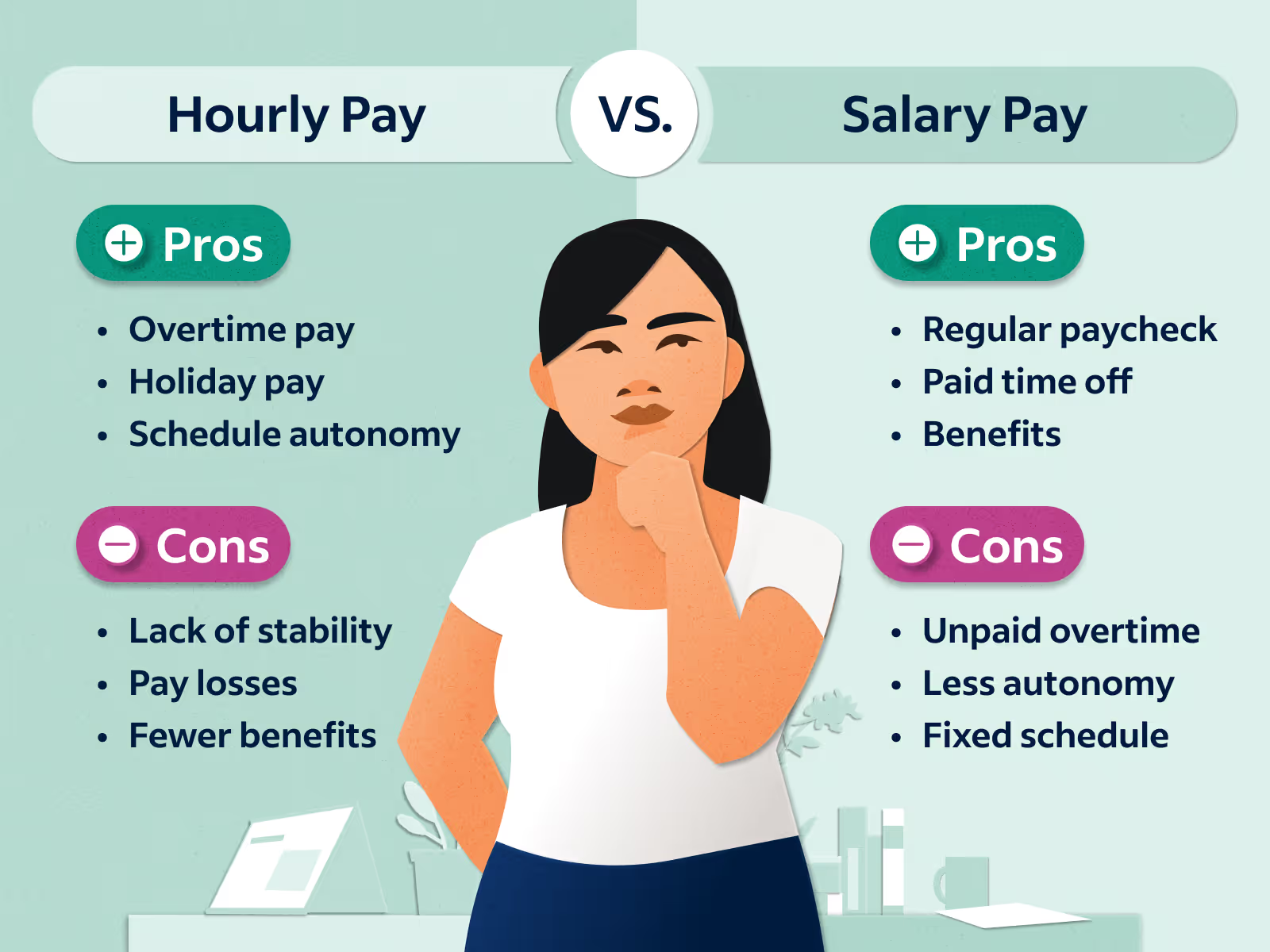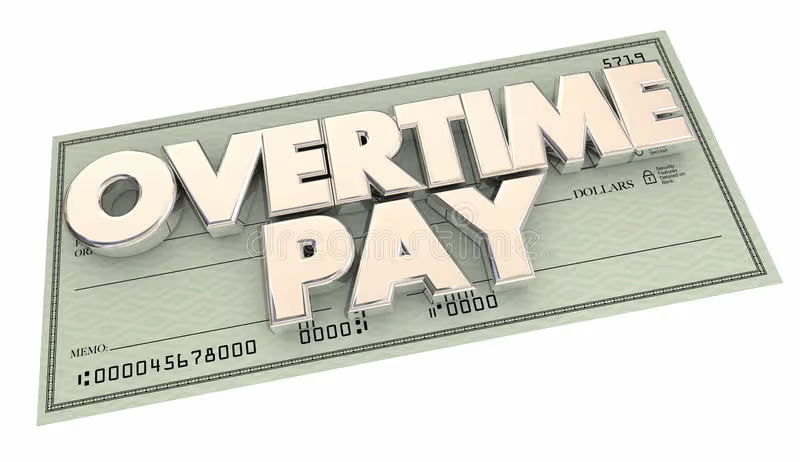6 Key Components of Manufacturing Compensation Planning 2025

Manufacturing compensation refers to the total package of wages, salaries, and benefits that employees receive for their work in the manufacturing industry. The compensation package can vary depending on arrange of factors, including the employee's role, level of experience, geographic location, and the size and type of manufacturing company.
In general, manufacturing compensation packages may include:
- Base salary or hourly wages
- Overtime pay
- Bonuses and incentives
- Health and wellness benefits
- Vacation time and paid time off
Base Salary vs Hourly Wages
This is the amount of money that an employee earns for their work on an annual or hourly basis. Base salary or hourly wages refers to the fixed amount of money that an employee earns for their work on an annual or hourly basis, regardless of the amount of work performed or the level of productivity achieved.

- For employees who are paid a base salary, their compensation is usually expressed as an annual figure. This means that they receive a predetermined amount of money each year, which is divided into regular paychecks. For example, an employee who is paid a base salary of $50,000 per year would receive approximately $1,923 every two weeks (before taxes and other deductions).
- For employees who are paid hourly wages, their compensation is based on the number of hours worked. This means that they receive a predetermined amount of money for each hour worked. For example, an employee who is paid an hourly wage of $20 would earn $400 for working 20 hours in a week (before taxes and other deductions).
Base salary and hourly wages are important components of an employee's compensation package, and they are typically determined based on factors such as the employee's level of experience, the industry, and the geographic location.
Bonuses and Incentives
Some companies offer bonuses and incentives to reward employees for meeting production goals or achieving other performance targets. Bonuses and incentives are other important components of manufacturing compensation packages. These rewards are typically given to employees who achieve certain goals or milestones, such as meeting production targets, completing projects on time, or exceeding quality standards.

The specific bonuses and incentives that are offered can vary widely depending on the company and the industry. Some common types of bonuses and incentives in manufacturing include:
- Performance-based bonuses: These bonuses are given to employees who achieve specific performance goals, such as increasing productivity or reducing wastes.
- Profit-sharing bonuses: These bonuses are based on the financial performance of the company and are typically distributed to all employees or a specific group of employees.
- Sign-on bonuses: These onuses are offered to new employees as a way to attract and retain talent.
- Referral bonuses: These bonuses are offered to employees who refer new hires to the company
- Awards and recognition programs: These programs recognize and reward employees for exceptional performance, teamwork, or other achievements.
Bonuses and incentives can be powerful motivators for employees in the manufacturing industry, as they provide a tangible reward for hard work and encourage employees to perform at their best. Additionally, these rewards can help companies to attract and retain top talent, which is critical for long-term success in the competitive manufacturing industry.
Health and Wellness Benefits
Many manufacturing companies offer health insurance, retirement plans, and other benefits to help employees stay healthy and secure. Health and wellness benefits are an important part of manufacturing compensation packages. These benefits can include a range of services and programs designed to help employees maintain their physical and mental health, as well as their overall well-being. Some common health and wellness benefits offered in manufacturing compensation packages include:
- Health insurance: Many manufacturing companies offer health insurance as part of their compensation package. This can include medical, dental, and vision coverage, as well as other services such as wellness programs and employee assistance programs.
- Retirement plans: Many manufacturing companies offer retirement plans, such as 401(k) plans, to help employees save for their future.
- Paid time off: Manufacturing companies may offer paid time off, including vacation time, sick leave, and personal days, to help employees balance their work and personal lives.
- Wellness programs: Some manufacturing companies offer wellness programs, such as gym memberships, weight-loss programs, and stress-management programs, to help employees stay healthy and reduce stress.
- Disability and life insurance: Some manufacturing companies offer disability and life insurance to help employees protect themselves and their families in the event of an unexpected illness or death.
Health and wellness benefits are an important part of manufacturing compensation packages, as they help to promote employee health and wellbeing and provide a safety net for unexpected events. These benefits can also help manufacturing companies attract and retain top talent, which is critical for long-term success in the competitive manufacturing industry.
Overtime Pay
Manufacturing jobs often require employees to work overtime to meet production demands, so many compensation packages include additional pay for working beyond normal hours. Overtime pay is an important aspect of manufacturing compensation, as many manufacturing jobs require employees to work beyond their regular hours to meet production demands.
Overtime pay is usually calculated as a rate of pay that is higher than the employee's regular hourly wage, and it is typically paid for any hours worked beyond a certain threshold, such as 40 hours per week.

The specific rate of overtime pay can vary depending on a range of factors, including the industry, the employee's role, and the location of the manufacturing company. For example, some companies may offer time-and-a-half pay for overtime hours, which means that the employee earns 1.5 times their regular hourly wage for each hour worked beyond the threshold.
Other companies may offer double-time pay for overtime hours, which means that the employee earns twice their regular hourly wage for each hour worked beyond the threshold.
Vacation time and paid time off
Most compensation packages include paid vacation time and sick leave to give employees time to rest and recharge. Vacation time and paid time off (PTO) are important components of manufacturing compensation packages. These benefits provide employees with time away from work to recharge, spend time with their families, and pursue personal interests.
Vacation time is typically a set number of days off that employees can take each year, and it is typically based on the employee's length of service with the company.
For example, a manufacturing company may offer two weeks of vacation time to employees who have been with the company for one year, and three weeks of vacation time to employees who have been with the company for five years or more.
Paid time off (PTO) is a more flexible form of timeoff that allows employees to use their time off for any purpose, such as vacation, sick leave, or personal days.
PTO is usually accrued based on the number of hours worked, and employees can use their PTO as needed throughout the year.
Both vacation time and PTO are important for promoting work-life balance and employee well-being. They also help manufacturing companies attract and retain top talent, as employees are more likely to stay with a company that values their time off and supports their work-life balance needs.
Digitizing Compensation for Manufacturing
Yes, digitization can certainly transform manufacturing compensation planning by improving performance tracking, transparency, and agility in the reward system.
Indeed, with growing competition, changing Manufacturing technology, and risks related to laws, security, and the changing economic landscape, the challenges are multitude. Both talent and technology are critical to tackling these issues, so HR and more specifically Rewards will have an important part to play.
By digitizing rewards, manufacturing organizations can make their Rewards processes more efficient, accurate, and transparent, which can lead to improved employee satisfaction and retention.
This can reduce the likelihood of favoritism, bias, or error in the compensation planning process. It also allows manufacturers to provide personalized rewards and recognition that align with individual performance metrics, which can be motivating for employees.
Digitization also allows for more agile compensation planning, making it easier for manufacturers to adjust rewards based on changes in business priorities and market conditions. This helps to ensure that employees are rewarded for contributing to the company's success, and that the compensation system is aligned with the overall business strategy.
One way that digitization can transform compensation planning is through the use of software platforms that automate the calculation and distribution of rewards. Platforms like Compport can help Rewards teams manage complex compensation structures, track performance metrics, and ensure compliance with regulatory requirements. They can also provide employees with real-time access to their rewards data, which can increase their engagement and motivation by empowering line managers to take their rewards decisions independently if required.
Another way that technology can transform compensation planning is through the use of data analytics. By collecting and analyzing data on employee performance, manufacturers can gain valuable insights into the effectiveness of their compensation plans and make data-driven decisions about how to improve them. For example, they might identify that certain types of rewards are more effective than others, or that certain employees are consistently outperforming their peers and should be rewarded accordingly.
A large Indian manufacturing giant had multiple problems before implementing Compport too. There was a huge effort on simulation, budget control and management & analytics to support the decision making process. The the process lacked centralized control, audit trails on workflow approvals.
Once Compport was in place cycle times of the company decreased substantially. Entirety of the rewards processes were managed in a smoother, efficient way. The relationship with thousands of stakeholders improved and became seamless with use of efficient Technology.
Manufacturing organizations are reporting as much as 90% increase in Rewards team efficiency with implementation of Compport in the form of Rewards Tech.
Conclusion
Overall, digitization can significantly enhance compensation planning in manufacturing by making it more efficient, accurate, and transparent, leading to a more effective and engaged workforce, improved productivity, and better business outcomes.
Find out how Compport can help you manage all your Compensation Management process, book a demo today!
%2520(6)%2520(2).avif)
Frequently Asked Questions
Q1. What is manufacturing compensation?
Answer: Manufacturing compensation refers to the total package of wages, salaries, and benefits that employees receive for their work in the manufacturing industry.
Q2. What are the key components of manufacturing compensation packages?
Answer: The key components of manufacturing compensation packages include base salary or hourly wages, overtime pay, bonuses and incentives, health and wellness benefits, and vacation time and paid time off.
Q3. What types of bonuses and incentives are commonly offered in manufacturing?
Answer: Some common types of bonuses and incentives in manufacturing include performance-based bonuses, profit-sharing bonuses, sign-on bonuses, referral bonuses, and awards and recognition programs.
Q4. How can digitization transform manufacturing compensation planning?
Answer: Digitization can improve performance tracking, transparency, and agility in the reward system, making compensation planning more efficient and accurate. It also enables personalized rewards, data-driven decision-making, and automation of processes.
Q5. What benefits can manufacturing organizations gain from digitizing compensation planning?
Answer: Digitization can lead to improved employee satisfaction and retention, reduced favoritism and bias, increased engagement and motivation, better alignment with business strategy, and more efficient rewards processes


%20(49).png)
%20(48).png)
%20(47).avif)
